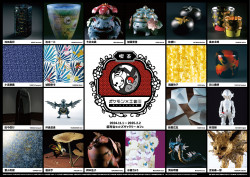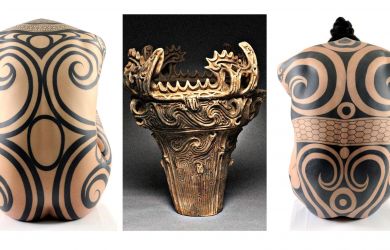
May 6, 2010
Hotel Iris
Originally published on metropolis.co.jp on May 2010 What does it say for an author when her most widely translated work is also her most sexually explicit? In Japan, Yoko Ogawa is best remembered for 2003’s The Housekeeper and the Professor, the gentle, ambling story of an amnesiac mathematician and the single mother who works as […]
By Metropolis
Originally published on metropolis.co.jp on May 2010
What does it say for an author when her most widely translated work is also her most sexually explicit? In Japan, Yoko Ogawa is best remembered for 2003’s The Housekeeper and the Professor, the gentle, ambling story of an amnesiac mathematician and the single mother who works as his helper. But to readers in Portugal or Slovenia, she’s the author of Hotel Iris, the rather less family-friendly account of a teenage girl’s affair with a man old enough to be her grandfather.
This is familiar territory for Ogawa, a writer who probes the darker corners of human psychology like someone picking at a scab. In clean, unadorned prose, she describes characters held in the sway of forbidden and unorthodox emotions. The heroine of Kusuriyubi no Hyohon (loosely adapted by French director Dianne Bertrand as the 2005 film L’Annulaire) submits to the fetishistic advances of her boss, a fastidious curator of memories; the teenage narrator of The Diving Pool casually abuses a toddler at her parents’ orphanage without really knowing why; the chronicler of the Pregnancy Diary fattens up her expectant sister with jam that she half-hopes is toxic.
In Hotel Iris, the protagonist also finds herself succumbing to urges that she can’t explain. Seventeen-year-old Mari works as a clerk at the titular hotel, a dilapidated establishment of the kind found in many Japanese seaside resorts, boasting dodgy plumbing and a view of the local fish factory. With only her domineering mother and a loathsome maid for company, she lives in a state of emotional withdrawal. Each day, her mother fixes her hair for her, in an act that’s not so much about love as domination: “When she starts in with the brush, I can barely stand it, but if I move my head even the least bit, she tightens her grip.” This grim ritual will provide a counterpoint for subsequent events in the book.
When an aging translator has an altercation with a prostitute at the hotel, Mari is drawn to him—or, more specifically, his voice: “almost serene, like a hypnotic note from a cello or a horn.” A chance encounter with the man sets in course an illicit romance between the pair, unhindered by their 50-year age gap. The translator writes long, polite letters to Mari, revealing the depths of both his lust and loneliness. “Finally, I am at a loss to distinguish between the desire to see you as soon as possible, and the pleasant prospect of waiting forever.” In sex, he’s far less of a gentleman, being more interested in elaborate acts of humiliation and bondage.
Mari surveys the disgraces inflicted on her with dispassionate calm. “Reflected in the glass, I looked like a dying insect, like a chicken trussed up in the butcher’s storeroom,” she says. On returning to the hotel, her mother gets to work on her hair again, and she realizes her perverse triumph: “I had gone somewhere far away today… In my heart, I told her that her pretty little Mari had become the ugliest person in the whole world.”
What makes this all so disquieting is that Ogawa never imposes judgment on what is happening. The only character who figures out what’s going on—before it’s too late, at least—is the translator’s mute nephew, and he professes not to find the relationship strange. Indeed, we’re left with the sense that being strung up by an elderly sadist might be preferable to Mari’s dismal home life. Hotel Iris doesn’t answer that question, and it lingers long after this succinct, quietly devastating novel is over.







